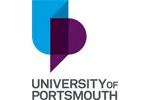We're moving! This site will be relocating to goingto.university in 2026. Please update your bookmarks to the new address.


| The award | How you will study | Study duration | Course start | Domestic course fees | International course fees |
|---|---|---|---|---|---|
| BSc (Hons) | Full-time, Sandwich | 3 - 4 years | September | - | - |
Overview
Marine biologists are the first line of defence for our blue planet, and are crucial to enhance the ecology and environment of our oceans.
This BSc (Hons) Marine Biology degree, accredited by the Royal Society of Biology (RSB), will give you the skills you need to play your part.
With conservation projects and world class facilities on our doorstep, Portsmouth is the perfect place to begin a career as a marine scientist.
Course highlights
Accredited by:
This programme has been accredited by the Royal Society of Biology following an independent and rigorous assessment. Accredited degree programmes contain a solid academic foundation in biological knowledge and key skills, and prepare graduates to address the needs of employers. The accreditation criteria require evidence that graduates from accredited programmes meet defined sets of learning outcomes, including subject knowledge, technical ability and transferable skills.
Careers and opportunities
Marine biology is the study of the organisms, plants and animals that make up the world's saltwater ecosystems. It's a vital area of science when it comes to protecting our oceans and seas - marine biologists aim to better understand marine environments and to investigate the factors that alter marine ecosystems, both natural and man-made.
On this BSc (Hons) Marine Biology degree, you'll learn about a wide array of marine organisms, from phytoplankton to cetaceans, and how to protect the oceans and their delicate ecosystems against the growing threats of climate change, habitat destruction and resource exploitation.
You’ll conduct fieldwork in a range of intertidal habitats, including rocky shores, estuaries, saltmarsh and mangroves, and become an expert in diverse and rich marine ecosystems, from coral reefs to the deep sea.
When you graduate, you'll be ready for a career in a range of marine science areas, such as conservation, resource management and aquaculture, or to pursue academic research, lab work, field work or policy making.
You could also continue your studies at postgraduate level. Many graduates go onto study MRes Science or MSc Applied Aquatic Biology.
Memberships
You'll also be able to apply to be a Registered Marine Scientist and you'll meet some of the academic requirements to become a Chartered Marine Scientist. And you'll be eligible to apply for Associate Membership of the Royal Society of Biology, which includes access to exclusive grants and awards.
What areas can you work in with a marine biology degree?
Previous graduates of this course have gone on to work in:
Graduate roles
Roles previous graduates have gone on to do include:
Placement year
After your second or third year, you can do an optional work placement year to get valuable longer-term work experience in the industry. Placements give you the opportunity to apply what you've learnt so far in a real workplace, boosting your employability and making you attractive to employers after graduation.
You can work for a company or organisation here in the UK or overseas, although our coastal location means there are many placement opportunities nearby.
Our partners include commercial, research and non-profit organisations such as:
Whichever route you choose, you'll receive support and guidance. Our specialist team of Science and Health Careers advisors can help you with finding a work placement and improving your employability skills. They'll provide you with a database of placement vacancies, support with your job search – including help with applications and interviews – and support throughout your placement year.
Study abroad
You'll also have the opportunity to study abroad at one of our partner universities. Studying overseas is a fantastic opportunity to enhance your CV and experience a different culture as an international student.
Many of our students describe their time spent studying abroad as truly life-changing, as well as an excellent way to stand out to future employers.
https://www.port.ac.uk/study/undergraduate/undergraduate-fees-and-student-finance
112-120 points to include 3 A levels, or equivalent, with 40 points from A level Biology. For A levels which include a separate science practical component, a pass is desirable and may strengthen an application.
English language proficiency at a minimum of IELTS band 6.0 with no component score below 5.5.
Below are some suggested courses at other providers that you may also be interested in:
Advanced Bachelor of Bioinformatics Advanced Diploma, Bachelor Degree
Howest University of Applied Sciences
Find out moreConsider a Foundation or Pathway course at University of Portsmouth to prepare for your chosen course:
If you do not meet the entry requirements for this course then consider one of these courses from another institution:
There are 529 other courses listed from University of Portsmouth. A selection of these are displayed below:
Join the StudyLink email list and never miss a chance to turn your study abroad dreams into reality!

Find out more about studying in the United Kingdom